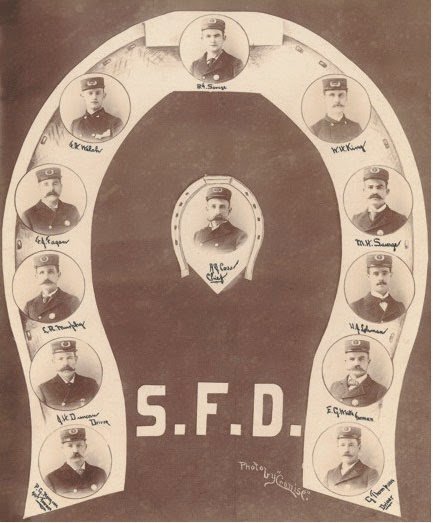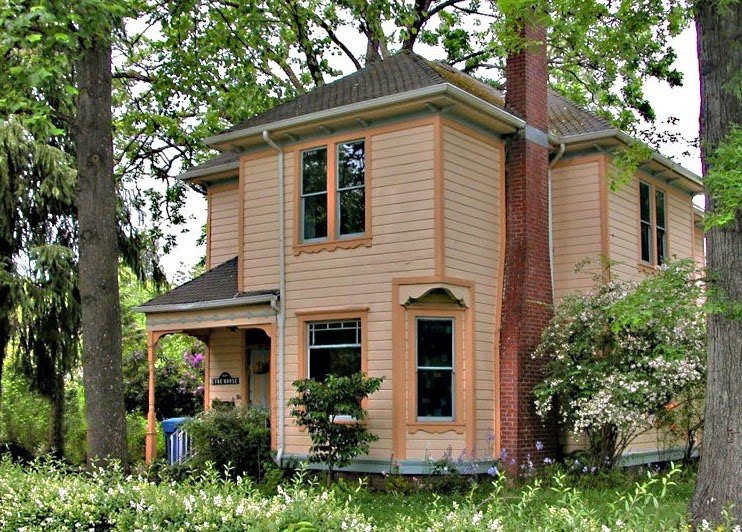World Events
- Hawaiian Queen Liliuokalani attempts to re-write the constitution but a Committee of Safety, led by American businessmen, place the queen under arrest and overthrew the Hawaiian monarchy.
- The Second Irish Home Rule Bill passes in British Commons, but is defeated in House of Lords.
- Grover Cleveland, 22nd. President, is sworn in as 24th. Only president to serve two non-consecutive terms.
- The World’s Columbian Exposition
, the Chicago World’s Fair, opens. - A crash on the New York Stock Exchange starts a financial depression.
- Lizzie Borden is acquitted of murdering her parents.
- At a special meeting of the American Historical Association, historian Frederick Jackson Turner presents his essay, “The Significance of the Frontier in American History”. His theory is that the opportunities and the fascination with our frontier and, especially the expansion of the American west, has shaped American character and culture.
- The Hill sisters copyright a book of children’s songs, one of which is later published, without authorization, as “Happy Birthday to You”. (They win a copyright lawsuit in 1934.)
In Salem
The city is taking new responsibi
When you visit
Salem currently has four Fire Station museums. You may glance at the historic equipment through the street-front windows, or make an appointment through Fire Station #1 and enjoy a guided tour of any museum. Closures of several stations, due to budget cuts, may effect when visiting times are available.
Other events
- Mayor Gatch proposes a site for municipal offices on High Street, but a report of the city attorney suggests a city hall at the west end of Willson Avenue [now Willson Park]. The mayor prevails, but depressed economic conditions cause a two-year delay in completion of the new City Hall.
- On Mill Street, George Eyre builds a residence, seen above as it looked in 2007. It is now a SESNA neighborhood Local Landmark. The Vernacular Queen Anne house had two owners in the ten years before George Eyre purchased it. In 1893 Mrs. Martha J. Atwood acquired the lot and the house was built for her. In the next year, her daughter, Linnie, married A. A. Lee in the new house. Mrs. Atwood sold the property to J. D. Trammel in August of 1903, and Mr. Trammel sold it to George and Ida Eyre a year later. It remained in the Eyre family from 1904 until sold by the daughter, Mary Eyre, in 1996. Mary was a well-known teacher who lived there most of her 101 years. Her brother, David Eyre, a banker with Ladd and Bush, lived on Summer Street in Piety Hill. In the 1940s, his home was part of the evacuation of residences for the construction of the state buildings in North Capitol Mall. The house was purchased from the state and moved to the northeast corner of Mission and High Streets. It is in the Gaiety Hill/Bush’s Pasture Park Historic District of the SCAN neighborhood.
- Thomas Cronise leaves his occupation as a printer and joins his sister Anna in a photography business. Though the 1920s, his studio set the standard for Salem photographic portraits of city life.
- The state spends $11,000 upgrading and renovating the State Fairgrounds, adding new a new water system, floral garden and a mile-long racetrack.
- A copper-clad dome is added to the State House, completing the structure and adding to the dignity of this classic building. For more than forty years the dome was a photographic symbol of the Oregon capitol city.
- This year Johnny Jones is among the few “colored” residents of Salem this year named in the City Directory. Jones was listed as a 47 year-old mulatto working on the steamboat, Willamette. His 16 year-old daughter Mollie was “in school”. Another member of his family in Salem was his sister Anna Smith who was doing housework and day labor. Jones later gained considerable local fame as a caterer of style and talent: if you were fortunate enough to secure his services, you were considered a success socially.
Ben Maxwell recalled concerns of moral rectitude:
In an April ministers’ strike, clergymen refused to serve state institutions until a more adequate pay was available. Authorities offered ministers $2.50 for a penitentiary service, $4.00 for one at the asylum or reform school. The ministers insisted that the dignity of their labor deserved a better reward. Five dollars a service would be acceptable to them.
In July, patrons near the windows north of the Hotel Willamette dining room complained that the business block across the street possessed a full-fledged bawdy house with windows draped in red to attract attention. Vigorous protests were voiced.



2 Comments